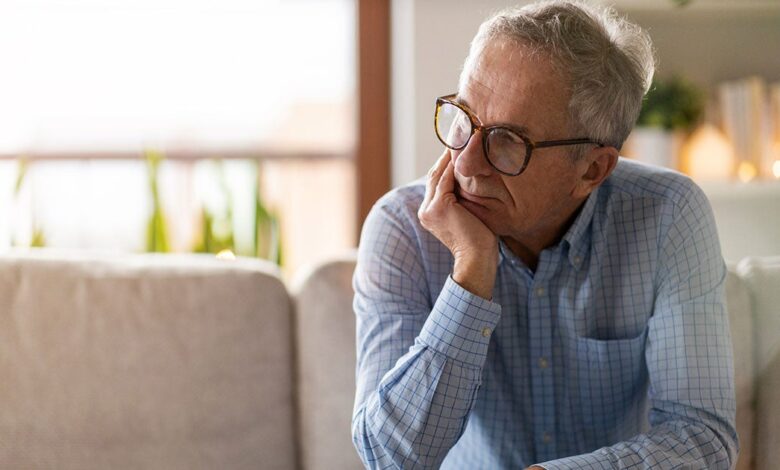Anxiety and isolation among adults: how it’s disrupting hormonal balance

We live in a perpetually connected world. Messages, reminders, and digital interaction never stop, and yet ever more individuals are feeling isolated, nervous, and cut off. Work-from-home situations, relationship dynamics, and even the exhausting pace of social media have adults feeling like islands in a crowded place.
Most of us are aware that such feelings have a negative impact on mental well-being. What goes unnoticed, though, is how profoundly anxiety and loneliness can throw the body’s hormonal system out of balance. It isn’t about mood swings, it’s about actual, quantifiable changes in the functioning of your body on a daily basis.
To understand what’s really going on, let’s explore the way stress influences hormones, why HGH is so important to adult health, and how your mindset is inextricably intertwined with your human growth hormone cycle.
The Stress Response and Hormonal Disruption
When anxiety is a normal aspect of everyday existence, your body starts to act like it’s in emergency mode all the time. The brain activates the hypothalamic-pituitary-adrenal (HPA) axis, setting off a cascade that overwhelms the system with cortisol, the key stress hormone.
Cortisol is helpful in small doses. It can enhance concentration and give you quick bursts of energy when you need them most. But when the levels are sustained over weeks or months, it starts to work against you. Chronic stress, over a period of time, can:
- Disrupt regular patterns of sleep, leaving you feeling tired even after a whole night’s sleep
- Suppress the immune system, making it harder to fight illness
- Cause weight gain, particularly in the middle
- Suppress libido and interferes with reproductive function
- Suppress HGH production — an important hormone for repair, recovery, and energy
This domino effect of hormones does not happen overnight. It sneaks up on you, which is why most people do not notice until fatigue, weight change, or other symptoms become too obvious to ignore.
Why HGH Is Important for Adults
HGH, human growth hormone, is most often associated with growth in children, yet its role in adulthood is just as important. In a healthy adult, human growth hormone is responsible for keeping different systems functioning well, including:
* Cell repair and regeneration – so that the body can recover from injury and physical stress
* Metabolism of fat – helping to break down stored fat for energy
* Muscle maintenance – maintaining lean muscle, which naturally degrades with age
* Skin elasticity – upholding a firm, youthful-looking skin
* Bone density – reducing the threat of osteoporosis later on
* Cognitive function – upholding concentration, learning, and memory recall
When anxiety and isolation disrupt sleep and raise cortisol, HGH levels can drop, which means all of these functions start to suffer.
The Connection to the Human Growth Hormone Cycle
Your HGH cycle, the natural release pattern of human growth hormone in your body, isn’t only about how much you work out or how old you are. It’s also heavily shaped by mental health and stress levels.
Most HGH is released during deep, restorative sleep. But stress leads to nights of insomnia, decreased deep-sleep cycles, and incessant waking, all of which suppress the release of HGH. Stress also decreases serotonin, a neurotransmitter that controls sleep and hormonal activity, too.
For others, the impact is so profound that life changes are not sufficient. In such instances, a medically supervised human growth human cycle can restore balance to hormones. This is not about fixing something quickly; it’s a guided, therapeutic means of rebuilding balanced human growth hormone levels following extensive durations of stress, burnout, or the cumulative impact of emotional stress and aging.
Practical Ways to Protect Hormonal Health
While medical interventions are sometimes needed, anyone can start to repair their hormonal balance with some positive, routine habits:
- Prioritize sleep – Go to bed and wake up at your usual hours to establish your own internal human growth hormone cycle.
- Remain socially active – Even short, face-to-face encounters can alleviate loneliness and lower stress hormones.
- Manage stress preemptively – Use breathing, mindfulness, or mild exercise to calm the nervous system.
- Exercise regularly – Weight training and high-intensity aerobic exercise support both mood and HGH secretion.
- Feed for hormonal balance – Eat adequate protein, essential fats, and nutrient-rich foods to stabilize energy and support repair.
Anxiety and isolation aren’t simply a matter of emotions; they’re systemic stressors that subtly disrupt hormonal balance, reduce human growth hormone production, and speed up the aging process. Curing the psychic side of health is just as important as healing the physical side.
Others will get relief by making lifestyle changes, but some may need a more structured approach, such as a guided human growth hormone cycle, to help the body heal. In both instances, treating the mental and physical aspects of the problem presents the highest likelihood of reclaiming energy, resilience, and overall vitality.


